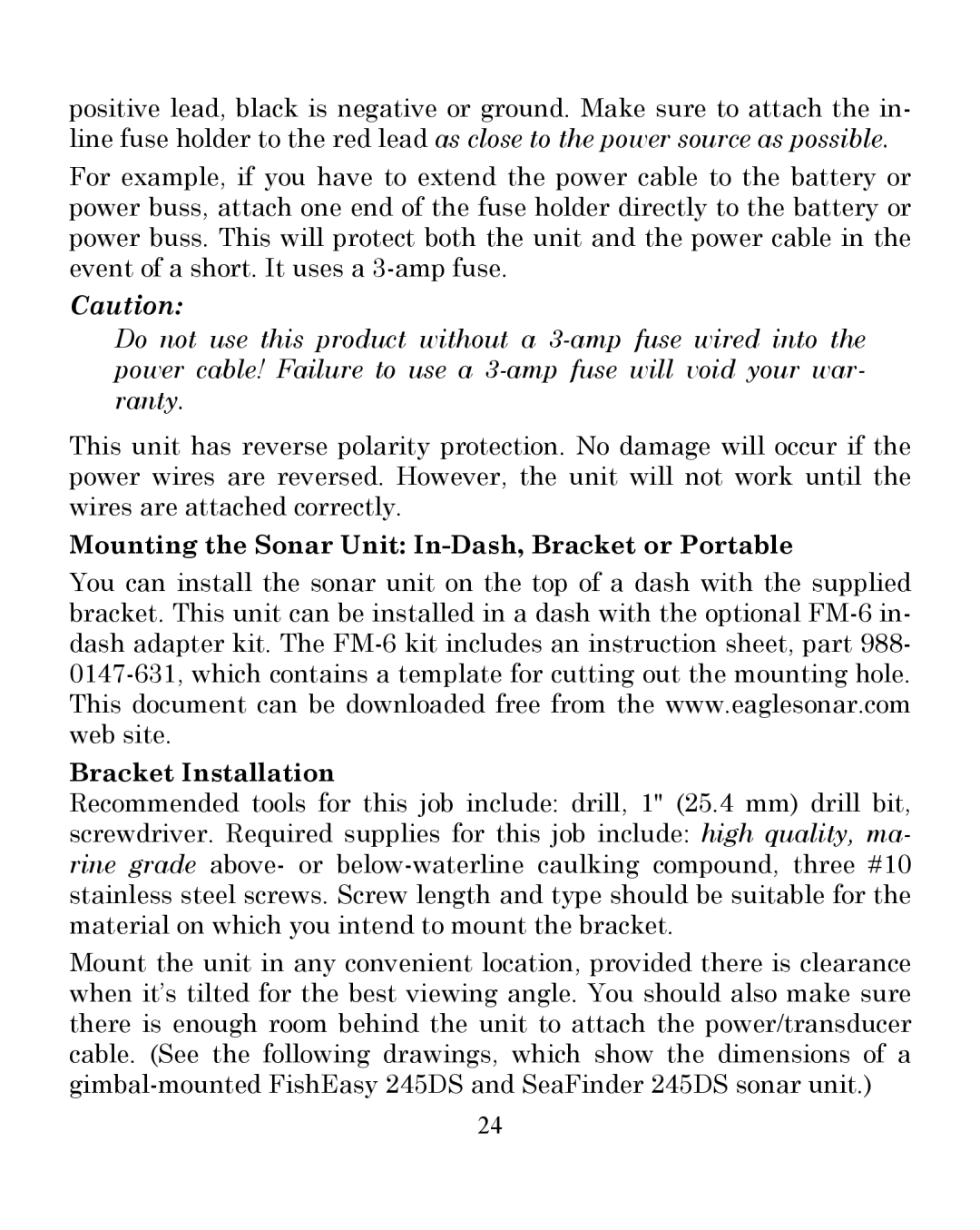positive lead, black is negative or ground. Make sure to attach the in- line fuse holder to the red lead as close to the power source as possible.
For example, if you have to extend the power cable to the battery or power buss, attach one end of the fuse holder directly to the battery or power buss. This will protect both the unit and the power cable in the event of a short. It uses a
Caution:
Do not use this product without a
This unit has reverse polarity protection. No damage will occur if the power wires are reversed. However, the unit will not work until the wires are attached correctly.
Mounting the Sonar Unit:
You can install the sonar unit on the top of a dash with the supplied bracket. This unit can be installed in a dash with the optional
Bracket Installation
Recommended tools for this job include: drill, 1" (25.4 mm) drill bit,
screwdriver. Required supplies for this job include: high quality, ma- rine grade above- or
Mount the unit in any convenient location, provided there is clearance when it’s tilted for the best viewing angle. You should also make sure there is enough room behind the unit to attach the power/transducer cable. (See the following drawings, which show the dimensions of a
24
